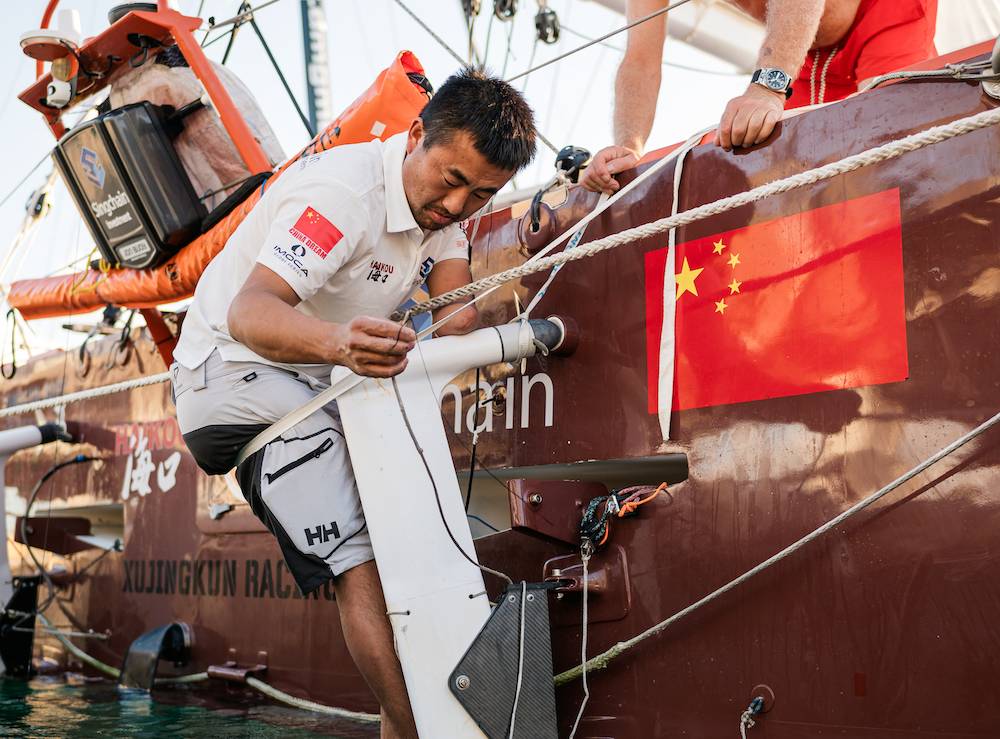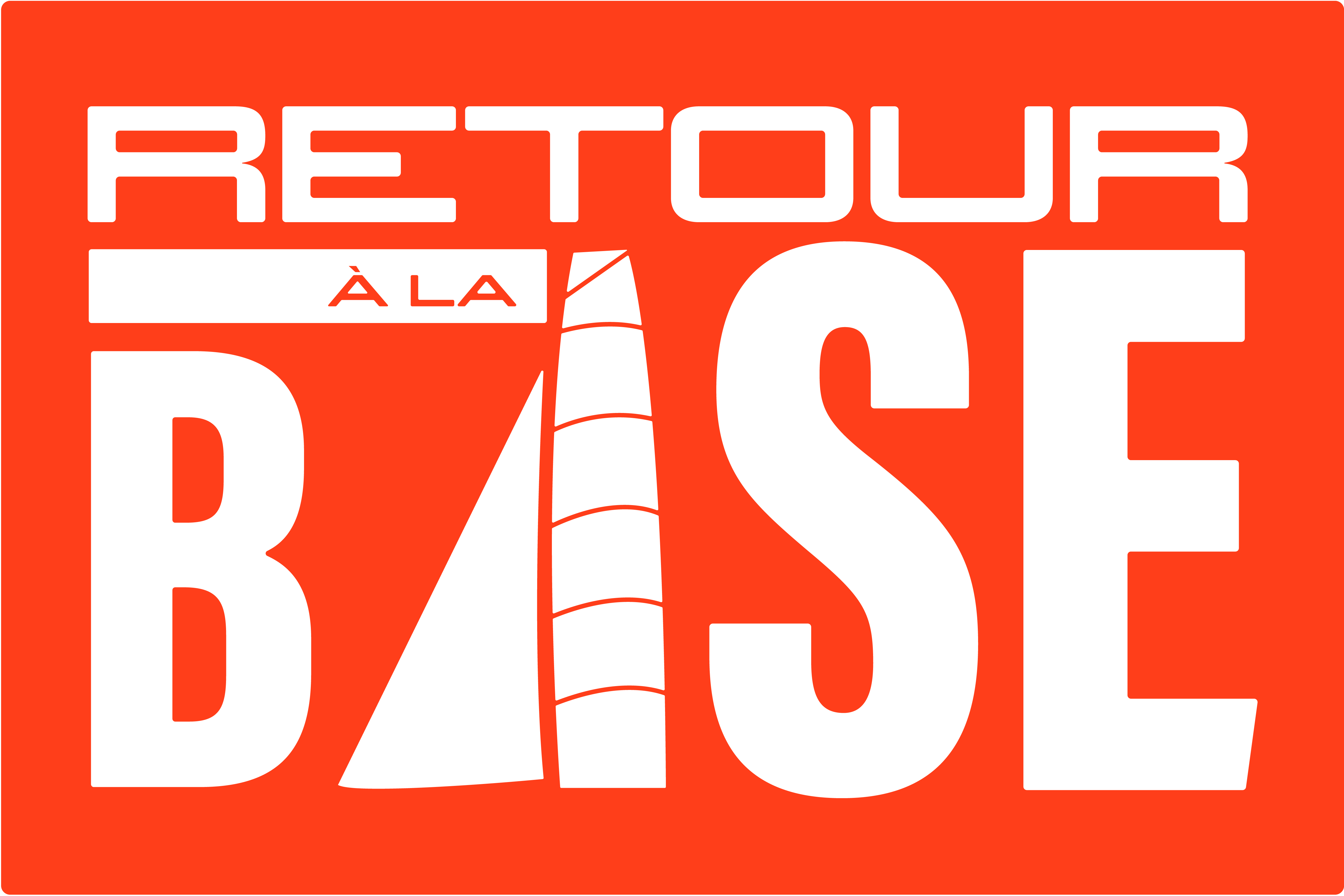Enjoying time with the Chinese community is key as Jingkun Xu faces super quick turnround in Martinique

Seemingly indefatigable Chinese skipper Jingkun Xu (Jackie) was the last to dock in Fort-de-France, Martinique after finishing in 33rd place on Singchain Haikou with British co-sipper Mike Golding late afternoon on Friday 24th , but he has been losing no time in getting his IMOCA ready to start the Retour à La Base, fulfilling his desire to meet the local Chinese community and tell his inspiring story, and – when he can – to sleep.
Seeking to become the first Chinese sailor to complete the Vendée Globe, Jackie is now well on course after completing last year’s solo Route du Rhum and now the Transat Jacques Vabre. But in view of the quick turnround in Martinique and the potential conditions in December on the Bay of Biscay, the Retour à La Base is probably going to be his toughest test yet.
Nonetheless Jackie has been fulfilling his commitments to his new friends in the local Chinese community just as he did last year in Guadeloupe. Saturday night he had a dinner with Golding and his wife Andrea, their team and 20 business people and prominent Chinese locals. Sunday morning his was out meeting kids at a Chinese school in Fort-de-France, telling them his incredible story of how he has made his life on the ocean despite losing part of his left arm at the age of 12, and how he went on to learn to sail, take up Paralympic sailing and lead a crew racing round the world. And then in the afternoon it was back to the boat to get on with the job list.
How do you feel physically and mentally after your race?
I feel very tired and have quite a lot of mental pressure. I guess that is inevitable. Finishing the TJV wasn't easy. We had that extremely bad weather conditions at the start and Mike and I had nine days of headwinds. So it was a significant physical challenge and it continues……...
But the main thing is we once again completed the race and gained the qualifying points. I'll take what brief rest I can now. I need to prepare immediately for the Retour à La Base, since there's a lot of work ahead. But that's how it is. Since we decided to join the IMOCA class and prepare for the Vendée Globe 2024 we knew the challenges we'd face. We have a very small team so there is a lot of work pressure but we have to just get on with it.
How will you try to recover before the start ?
Honestly, I don't really have time to recover. It is such a very difficult question for me because I know most skippers have a whole team to leave the preparation of the boa too. Other skippers usually rest and recuperate and leave the issues to their team and take time off, but I am afraid I have to do a lot myself before going back racing. On the first night back I got a good night's sleep. Bit from the second day onwards, I'm back to working on the boat and preparing for the race. So, in reality, I don't have a great way to share how I can have a proper recovery before the next race. So in answer to your question, I don’t know how I am going to recover, it might be easier when I am back at sea! But reaching Martinique is something I'm happy about. Having a warm and dry bed is a luxury, and I have so many Chinese friends here is fantastic. During the breaks I can relax by meeting my friends, have meals, and chat with them. Really being with my friends and sharing our culture here is a fantastic way for me to relax, perhaps the only means of rejuvenation I have before the next race.
What do you need to fix on the boat before the start?
After the race out the boat's condition is relatively good. There are some minor damages. A batten car is damaged, the mainsail has some tears, our J3 is also damaged. The hydraulic generator's support is broken. So, we'll spend the next few days fixing these issues. However, the main task is to really make a comprehensive check of the entire boat, identifying any potential hidden problems. Hopefully, the return race will go smoothly getting us back to Europe safely.
How much do you feel you have improved since the Route du Rhum?
Over the past two years, through the Route du Rhum and the TJV races, I've come on a lot, especially in my control over our boat and becoming more familiar with the small things. I understand it so much better and I understand the actual finer points of racing better too,
Last year’s Route du Rhum was my first time sailing an IMOCA on any kind of real race. So my experience was quite limited back then. But through that experience we learned so much more about race preparation and procedures, including media communication, which has helped all of us in our respective jobs.
Do you feel happier solo or two-handed or crewed sailing?
Well, I don’t crave being alone, let’s put it that way. In life, I genuinely enjoy gatherings with friends and a lively atmosphere. But my sailing kind of contradicts that side of my personality.
And actually I do prefer being with everyone, enjoying the pleasure of sailing with friends. However, when it comes to racing, to what I have chosen to do, being solo is simpler for me. You only need to look after yourself, to deal with your own issues and manage yourself. Sailing with a partner or a team means coordinating more teamwork and coordination, which isn't easy. It might seem that more people make things easier, but in reality, there are more challenges and difficulties involved, such as communication between each other coordination, and synergy. Including a new co-skipper, like Mike, whom I did not have much time to train with, didn't really allow enough time for him to fully understand and familiarize himself with the boat and me. Many times we maybe did not reach the full potential of two people. Comparatively, sailing as a duo is actually more challenging for me.
What will your strategy be? Do you have boats you benchmark/measure yourself against?
For me, the primary strategic goal is to secure enough points to qualify for the 2024 Vendée Globe. That's our main objective. That's why, whether in the Route du Rhum or the TJV or this race now we have a core strategic goal, to safely finish the race. I could push for a better race result, but that means greater risks. Damaging the boat might be a huge disaster for our newly formed team. With insufficient resources in terms of budgets, manpower, and time to solve complex problems quickly, during the race, I have to balance competition and safety. I am always reminding myself of our primary objective. So, during the race, I spend more time and effort into looking after the boat than really thinking about strategy and competition, which is usually very challenging and stressful for me.
When are you happiest on the boat?
Simply sailing an undamaged during the race and when the weather conditions are perfect for quick sailing are when I am at my happiest….and finishing!
